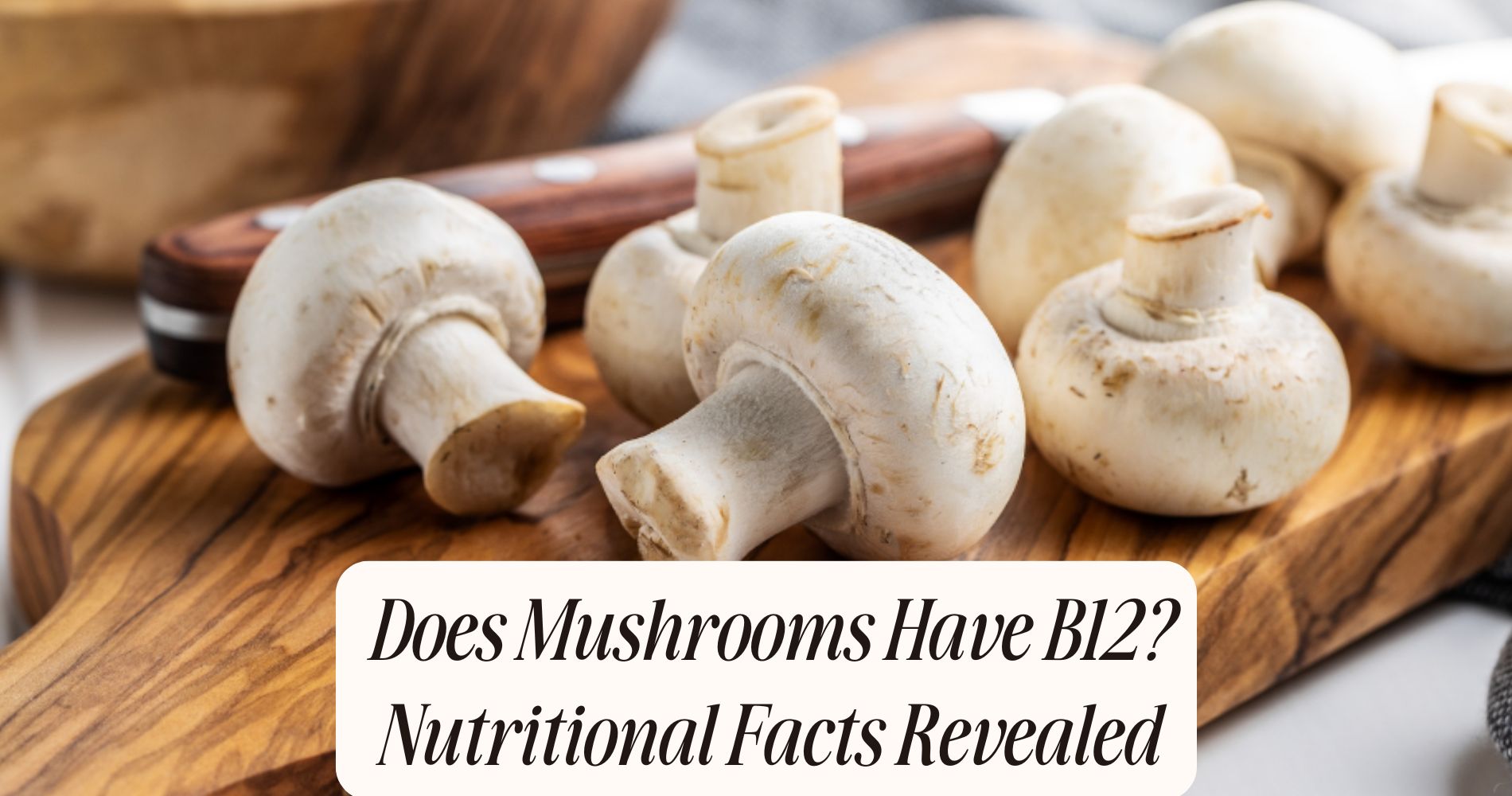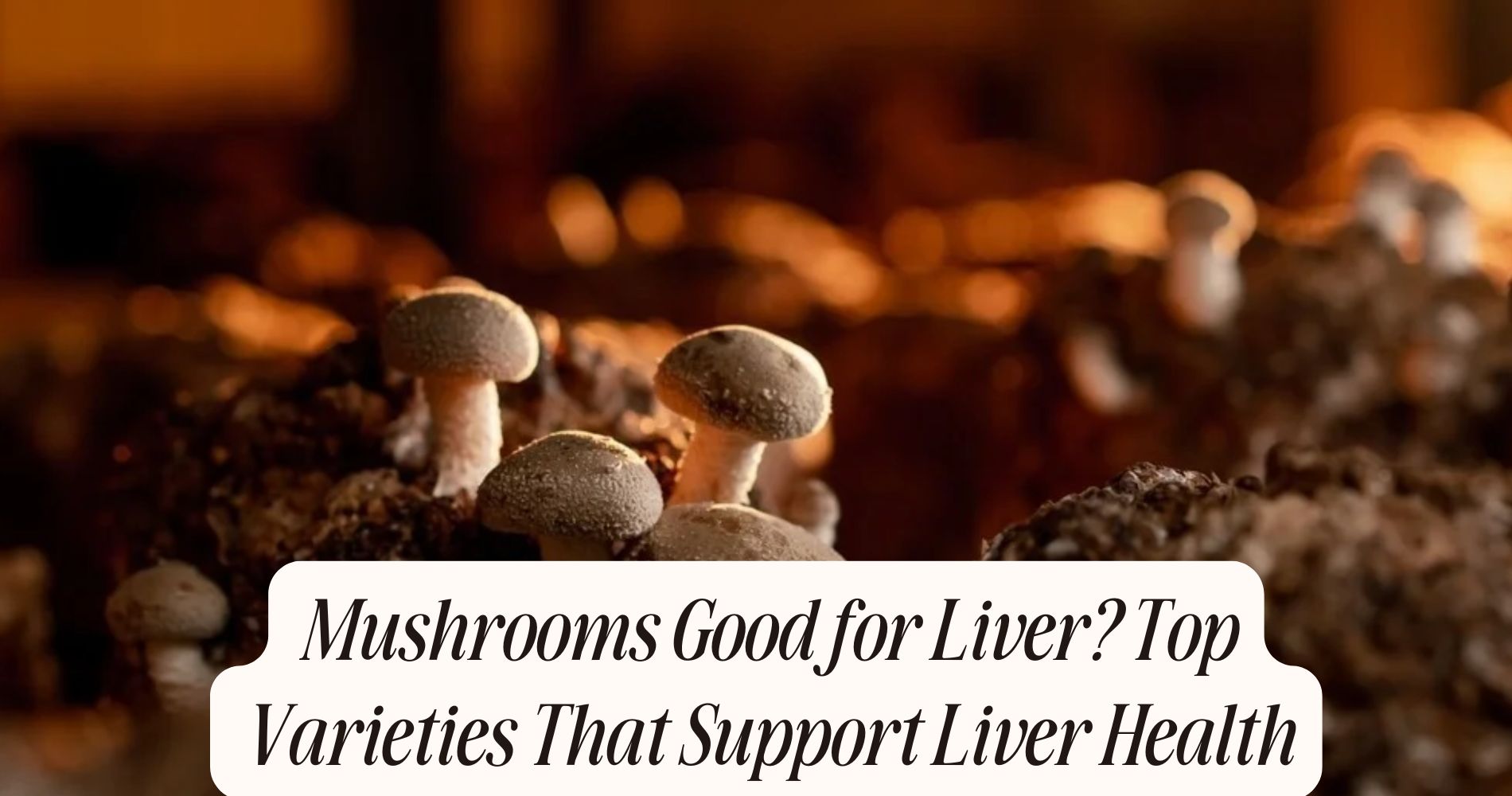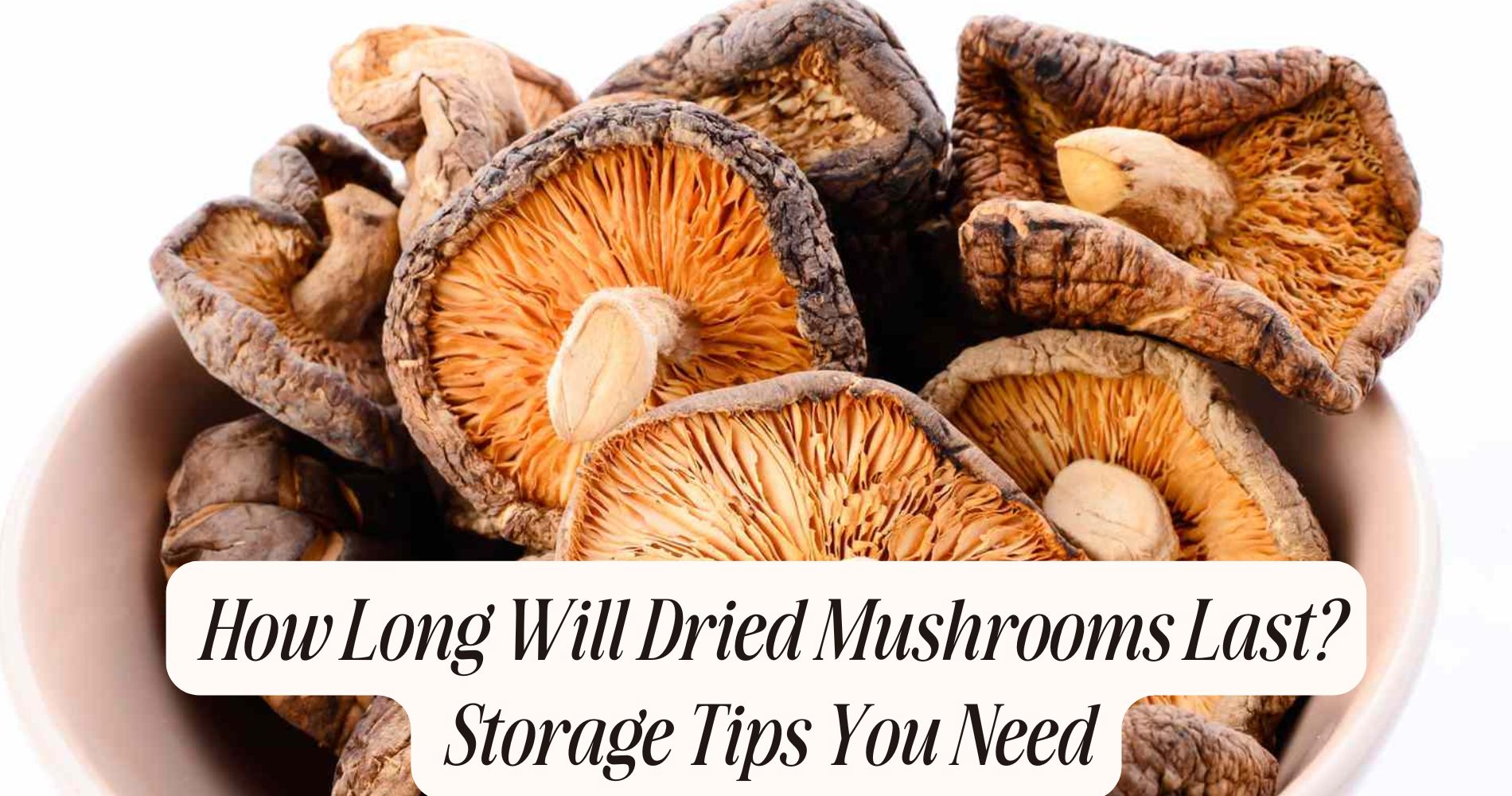
Does Mushrooms Have B12? Nutritional Facts Revealed
Does mushrooms have b12? Mushrooms are often hailed for their nutritional benefits, but you might wonder if they can meet your vitamin B12 needs. While some varieties, like shiitake and maitake, do contain trace amounts of this essential nutrient, their levels are generally insufficient compared to animal sources. It's vital to explore both the nutritional profile of mushrooms and other ways to guarantee you're getting enough B12 in your diet. What alternatives can help fill this gap?
Understanding Vitamin B12 and Its Importance
Vitamin B12, an essential nutrient for your body, plays a key role in the production of red blood cells and the maintenance of a healthy nervous system.
Understanding the importance of B12 is fundamental, as a deficiency can lead to serious health issues, including anemia and neurological disorders. Your body can't produce B12 on its own, so you need to obtain it from your diet or supplements.
Common sources include animal products like meat, dairy, and eggs. If you're a vegetarian or vegan, you're at a higher risk of B12 deficiency, which can manifest as fatigue, weakness, or cognitive impairment.
Regular monitoring and dietary adjustments can help guarantee you maintain adequate levels of this essential nutrient for peak health.
Nutritional Profile of Mushrooms
Mushrooms offer a unique addition to your diet, providing a variety of nutrients that can complement your overall health. Different mushroom varieties, such as shiitake, portobello, and maitake, each bring their own set of health benefits.
They're low in calories and rich in essential vitamins and minerals, including potassium, selenium, and various B vitamins. Additionally, mushrooms provide antioxidants that support your immune system and promote healthy cell function.

The fiber content aids digestion and can help maintain a healthy weight. Incorporating these nutritious fungi into your meals not only enhances flavor but also boosts your nutrient intake, making them a valuable part of a balanced diet.
Explore the diverse options available to maximize their health benefits.
Do Mushrooms Contain Vitamin B12?
How can you guarantee you're getting enough vitamin B12 in your diet? While many people rely on animal products for this essential nutrient, certain mushroom varieties have shown potential in offering some vitamin B12.
Research indicates that species like shiitake and maitake may contain trace amounts of this vitamin. However, the levels are generally low compared to what you'd find in meat or dairy.

Plus, the bioavailability of B12 from mushrooms can vary, affecting vitamin absorption in your body. If you're considering mushrooms as a B12 source, it's vital to combine them with other supplements or fortified foods to meet your dietary needs effectively.
Always consult a healthcare professional when making significant changes to your diet.
Types of Mushrooms and Their Nutritional Value
When exploring the diverse world of fungi, understanding the nutritional value of different mushroom types can enhance your diet.
Shiitake mushrooms, for example, offer significant health benefits, including immune support and cholesterol reduction. Their rich flavor makes them a favorite in various dishes.
Portobello mushrooms, on the other hand, are a versatile option for hearty meals. You can use portobello recipes to create satisfying burgers or stuffed dishes, which provide essential nutrients like potassium and fiber.
Both types are low in calories but high in antioxidants, making them excellent additions to a balanced diet.
Alternative Sources of Vitamin B12 for Plant-Based Diets
For those following a plant-based diet, finding alternative sources of Vitamin B12 becomes an important consideration. Since this vitamin primarily comes from animal products, you'll need to explore other options.
Nutritional supplements, particularly B12 capsules or sublingual tablets, are highly effective and can easily fill any gaps in your diet. Additionally, consider incorporating fortified foods like plant-based milks, breakfast cereals, and nutritional yeast into your meals.

These products are often enriched with B12, making it easier to meet your daily requirements. Regularly checking labels for B12 content can help guarantee you're getting enough of this crucial nutrient.
Tips for Including Mushrooms in Your Diet
While mushrooms are often overlooked as a dietary staple, they can be a versatile addition to your meals, enhancing both flavor and nutrition.
To include mushrooms in your diet, start with simple mushroom recipes like sautéed mushrooms with garlic or a hearty mushroom risotto. You can also add them to salads, stir-fries, or omelets for an extra boost of vitamins and antioxidants.
Consider trying different varieties, such as shiitake or portobello, to discover unique flavors and textures. Incorporating mushrooms regularly can provide various health benefits, including improved immune function and better digestion.
Experimenting with different cooking methods will help you enjoy their rich taste while reaping their nutritional rewards.
A Smarter Way to Get Mushroom Benefits
Looking for a delicious and convenient way to enjoy the power of mushrooms? Try SUPER MUSHROOM GUMMIES by Well Gummies. Each chew is packed with 10 functional mushroom varieties—like Lion’s Mane, Reishi, and Turkey Tail—designed to fuel your brain, boost immunity, and keep your energy steady throughout the day. These vegan-friendly gummies come in a juicy wild berry flavor that tastes just like your favorite candy—minus the jitters and crash. Easy to take, easy to love, and crafted to support your mind and body naturally.
Frequently Asked Questions
Can Cooking Mushrooms Affect Their Vitamin B12 Content?
Cooking methods can impact vitamin stability in mushrooms. While some heat treatments may preserve B12, others could reduce its content. You should consider the cooking process to maximize the nutritional benefits of mushrooms in your meals.
Are There Any Side Effects of Consuming Too Many Mushrooms?
If you consume too many mushrooms, you may experience digestive issues like bloating or diarrhea. Additionally, certain species can lead to mushroom toxicity, which can cause more severe symptoms. Moderation is key for safe consumption.
How Do Mushrooms Compare to Animal Sources of B12 in Absorption?
Mushrooms offer lower absorption efficiency of B12 compared to animal sources. While they can be dietary sources of nutrients, their B12 isn't as readily absorbed, making animal products generally more effective for meeting your B12 needs.
Are There Specific Mushroom Varieties Higher in Vitamin B12?
Certain edible mushroom varieties, like shiitake and maitake, show higher B12 levels compared to others. However, while they can contribute to your intake, they shouldn't replace primary B12 sources like meat or dairy products.
Can I Rely Solely on Mushrooms for My B12 Needs?
You can’t rely solely on mushrooms for your B12 needs due to their limited availability in most varieties. If you have dietary limitations, consider supplementing or incorporating other B12-rich foods into your diet.
Conclusion
In summary, while mushrooms like shiitake and maitake offer some trace amounts of vitamin B12, they shouldn't be your sole source of this essential nutrient. The levels found in mushrooms are generally low and may not meet your B12 needs, especially on a plant-based diet. To guarantee adequate intake, consider incorporating B12 supplements or fortified foods alongside your mushroom consumption. By doing so, you can enjoy the benefits of mushrooms while maintaining ideal nutritional health.




